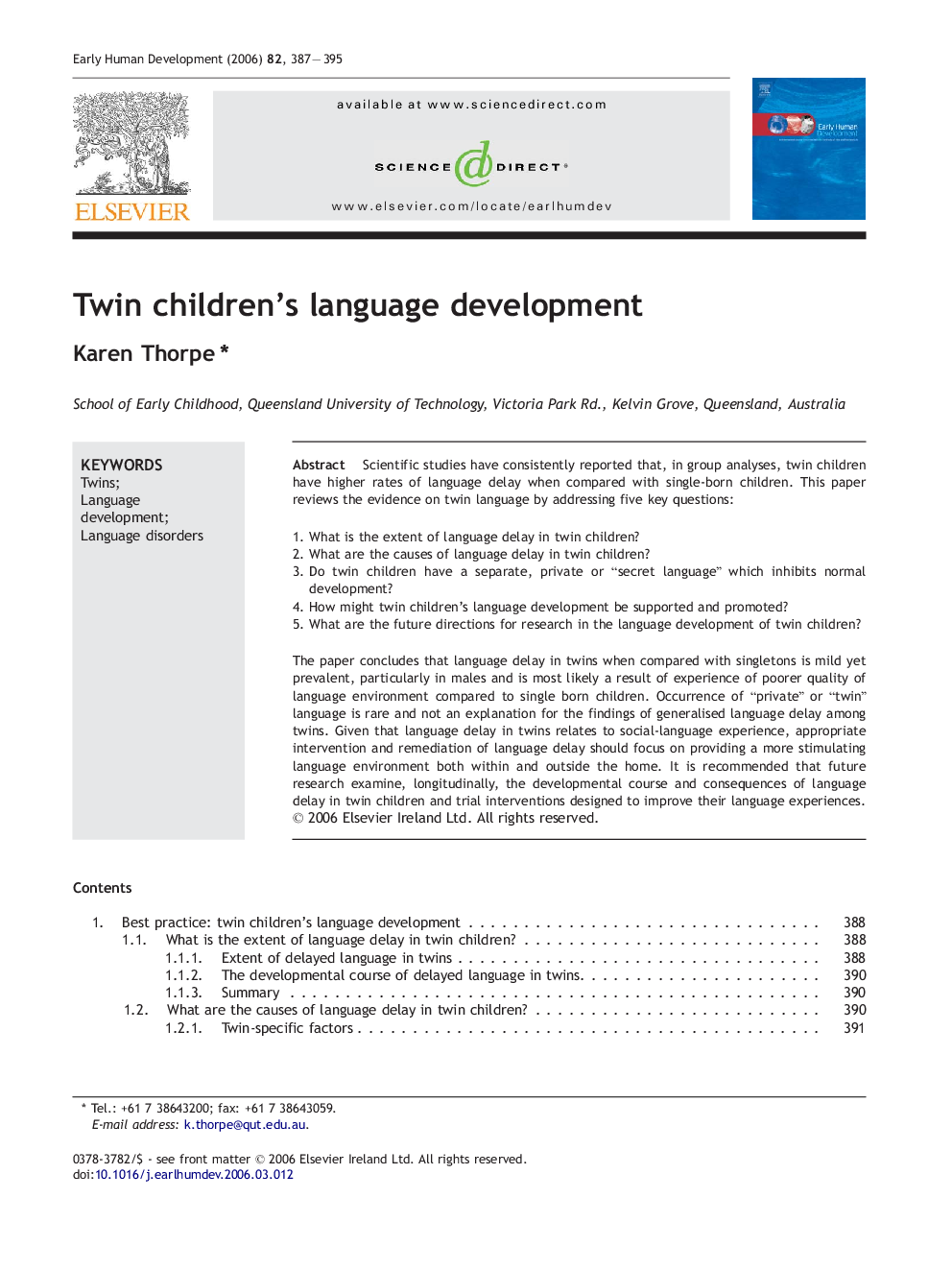| Article ID | Journal | Published Year | Pages | File Type |
|---|---|---|---|---|
| 3917384 | Early Human Development | 2006 | 9 Pages |
Scientific studies have consistently reported that, in group analyses, twin children have higher rates of language delay when compared with single-born children. This paper reviews the evidence on twin language by addressing five key questions:1.What is the extent of language delay in twin children?2.What are the causes of language delay in twin children?3.Do twin children have a separate, private or “secret language” which inhibits normal development?4.How might twin children's language development be supported and promoted?5.What are the future directions for research in the language development of twin children?The paper concludes that language delay in twins when compared with singletons is mild yet prevalent, particularly in males and is most likely a result of experience of poorer quality of language environment compared to single born children. Occurrence of “private” or “twin” language is rare and not an explanation for the findings of generalised language delay among twins. Given that language delay in twins relates to social-language experience, appropriate intervention and remediation of language delay should focus on providing a more stimulating language environment both within and outside the home. It is recommended that future research examine, longitudinally, the developmental course and consequences of language delay in twin children and trial interventions designed to improve their language experiences.
